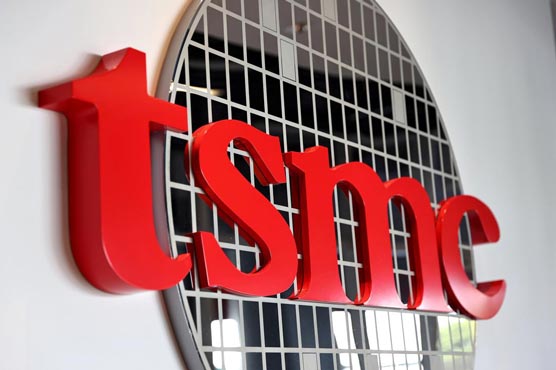TSMC sees chip shortage lasting into 2022, books solid profit

TSMC sees chip shortage lasting into 2022, books solid profit
TAIPEI (Reuters) -Taiwan Semiconductor Manufacturing Co Ltd (TSMC) said on Thursday it is doing all it can to increase productivity and alleviate a worldwide chip shortage, but that tight supplies will likely continue into next year.
The world’s biggest contract chipmaker said it is expanding capacity and working to keep pricing reasonable.
“We have acquired land and equipment, and started the construction of new facilities. We are hiring thousands of employees and expanding our capacity at multiple sites,” Chief Executive Officer C. C. Wei told an online earnings briefing.
The chip shortage is going to take “a couple of years” to abate, Intel CEO Pat Gelsinger told the Washington Post on Wednesday.
TSMC’s comments come after the firm reported a 19.4% rise in first-quarter profit, beating market expectations, on strong chip demand amid a global shift to home working.
TSMC, whose clients include Apple Inc and Qualcomm Inc, had already flagged “multiple years of growth opportunities” as the COVID-19 pandemic fuelled demand for advanced chips to power devices such as smartphones and laptops.
Its business was boosted by the chip shortage that initially forced automakers to cut production, but is now also hurting manufacturers of smartphones, laptops and even appliances.
On Thursday, TSMC said it expects the chip shortage for its auto clients to be greatly reduced from the next quarter.
TSMC’s net profit for January-March hit T$139.7 billion ($4.93 billion), versus the T$134.01 billion average of 22 analyst estimates compiled by Refinitiv.
Revenue rose 25.4% to a record $12.92 billion, in line with the company’s earlier estimated range of $12.7 billion to $13 billion.
The firm forecast second-quarter revenue would be in a range of $12.9 billion to $13.2 billion, compared with $10.38 billion in the same period a year earlier. It also lifted its revenue growth forecast for 2021 to about 20%, versus an earlier forecast of a mid-teens percentage.
TSMC said this month it plans to invest $100 billion over the next three years to increase capacity at its plants, days after Intel Corp announced a $20 billion plan to expand its advanced chip making capacity.
Wei said the massive investment plan was driven by “stronger engagement with more customers” on the company’s most advanced 5 nanometer node technology as well as its upcoming 3 nanometer node, which is scheduled to enter trial production later this year.
The company also increased capital spending on the production and development of advanced chips to about $30 billion this year, up from a range of $25 billion to $28 billion it forecast in January.
Wei said TSMC is seeing its clients preparing for “a higher level of inventory” to ensure supply stability due to uncertainties from geopolitics and the pandemic. As a result, he said, the company’s capacity will remain “tight” throughout the year.
Analysts are bullish about the company’s massive expansion plan, expecting global demand for advanced chips to surge as fifth-generation telecommunications (5G) technology and artificial intelligence applications are adopted more widely.
TSMC shares have risen about 16% so far this year and have more than doubled over the past one year, giving TSMC a market value of $558 billion, more than twice that of Intel’s and higher than that of South Korean technology giant Samsung Electronics Co Ltd.
The stock rose 1.14% on Thursday, compared with 1.25% for the benchmark index.

